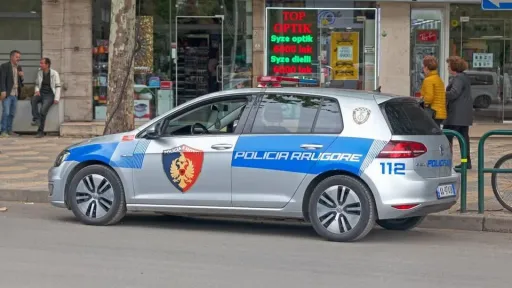Thousands of Headstones testify to the “unremitting Necessity of Justice”

The remains of 30 victims of the Srebrenica Genocide were buried at the Potočari Memorial Cemetery near Srebrenica yesterday. More than 7,000 victims of the genocide have been identified as a result of the DNA-led identification process pioneered by the International Commission on Missing Persons (ICMP), stated this international institution on the occasion of marking the 28th anniversary of the genocide in Srebrenica.
Each year, the remains of more victims are buried. The process of identification and reassembly of skeletal remains can involve recovery from multiple clandestine gravesites and may continue for a period of years.
Attending today’s ceremony at Potocari, together with staff from ICMP’s Western Balkans Program, Director-General Kathryne Bomberger said the thousands of white headstones that line the hillside opposite the factory where men and boys were separated from their families in July 1995, testify to the “unremitting necessity of justice.”
Ms. Bomberger stressed that “each of the people buried in this cemetery has been named,” and the facts of the Genocide have been established – through evidence that has been sifted in court and through identifications based on a proven and reliable scientific process.
“We stand together with the families of victims,” Ms Bomberger said. “Crimes committed in Srebrenica and elsewhere cannot go unpunished; the rule of law must be upheld. Everything must be done to secure truth, justice and reparations.”
This week, human remains that have already been identified and buried will be exhumed, and bones that have since been recovered will be restored to the skeleton; the bodies will then be reburied. In each case, the families have been contacted and asked to give their consent to the re-association. Even these bodies, in many cases, will still be incomplete, stated the ICMP.
ICMP is a treaty-based intergovernmental organization with Headquarters in The Hague, the Netherlands. Its mandate is to secure the cooperation of governments and others in locating missing persons from conflict, human rights abuses, disasters, organized crime, irregular migration and other causes and to assist them in doing so.
Turkish parliament condemns Srebrenica genocide on 28th anniversary
Lawmakers say they share 'indescribable pain of the martyrs who were killed in a persecution not seen in Europe since World War II'.
The Turkish parliament announced on Tuesday a joint statement condemning the 1995 Srebrenica genocide.
"We sincerely share the indescribable pain of the martyrs who were killed in a persecution not seen in Europe since World War II," the lawmakers said in a statement.
All the Turkish political parties in parliament extended their sympathies to the mourning families of the genocide victims as well as to all of the Bosnian people on the occasion of the 28th anniversary of the Srebrenica genocide, which they called “one of the darkest chapters in human history.”
“We want to highlight that we will never forget the Srebrenica genocide and that we will never tolerate similar incidents to prevent further suffering,” it added, recalling the words of Alija Izetbegovic, the first president of Bosnia-Herzegovina, on the Srebrenica genocide.
The Turkish parliament firmly supports Bosnia's territorial integrity, sovereignty, and independence and will never forget the Srebrenica genocide, the statement added.
More than 8,000 Bosnian Muslim men and boys were killed after Bosnian Serb forces attacked the UN "safe area" of Srebrenica, an eastern Bosnian town, in July 1995. Serb troops led by Gen. Ratko Mladic – later sentenced to life in prison for war crimes, crimes against humanity, and genocide – occupied the area. The bodies of the victims of the genocide were found in 570 different parts of the country.
AA







